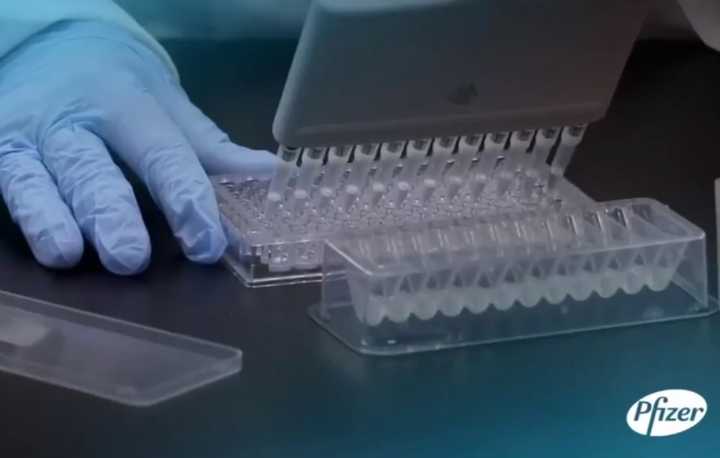Pfizer said it hopes to have 50 million doses of the free vaccine ready by the end of this year and as many as 1.3 billion doses available next year to fight the deadly global pandemic.
Two doses per person of BNT162b2 would be necessary, said the Manhattan-based drug maker, which teamed up with BioNTech of Germany to develop the booster.
Pfizer plans to ask the federal Food and Drug Administration to approve the vaccine for emergency use -- once it has proven that the vaccine is safe -- by the end of this month.
Pfizer CEO Albert Bourla called the vaccine "the greatest medical advance in the last 100 years” in a CNN interview.
"It is extraordinary,” he said, “but it's coming at a time that the world needs it the most.”
More than 100,000 new COVID-19 cases a day have recently been reported in the U.S.
According to Pfizer, 94 of 43,538 volunteer participants who received two doses each of the coronavirus vaccine candidate during a critical Phase 3 trial developed protective antibodies within 28 days that can at least temporarily hold the virus at bay.
SEE: First Primary Efficacy Endpoint Achieved In Interim Analysis
If that’s true, it would put their shot and accompanying booster close to immunity rates provided by the polio and measles vaccines, the FDA said.
SEE: Polio Vaccine Effectiveness and Duration of Protection
The flu vaccine’s effectiveness has declined in recent years from 48% for the 2015-2016 season to 29% last year, according to the CDC.
SEE: Seasonal Flu Vaccine Effectiveness Studies
Three other potential coronavirus vaccines -- from Moderna, AstraZeneca and Johnson & Johnson – reportedly are in Phase 3 stages of study.
Scientists are trying to determine whether a COVID-19 vaccine would be needed each year. An unverified study published last week reported that antibody immunity lasts at least six months.
Click here to follow Daily Voice Tarrytown-SleepyHollow and receive free news updates.
